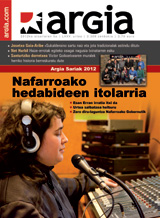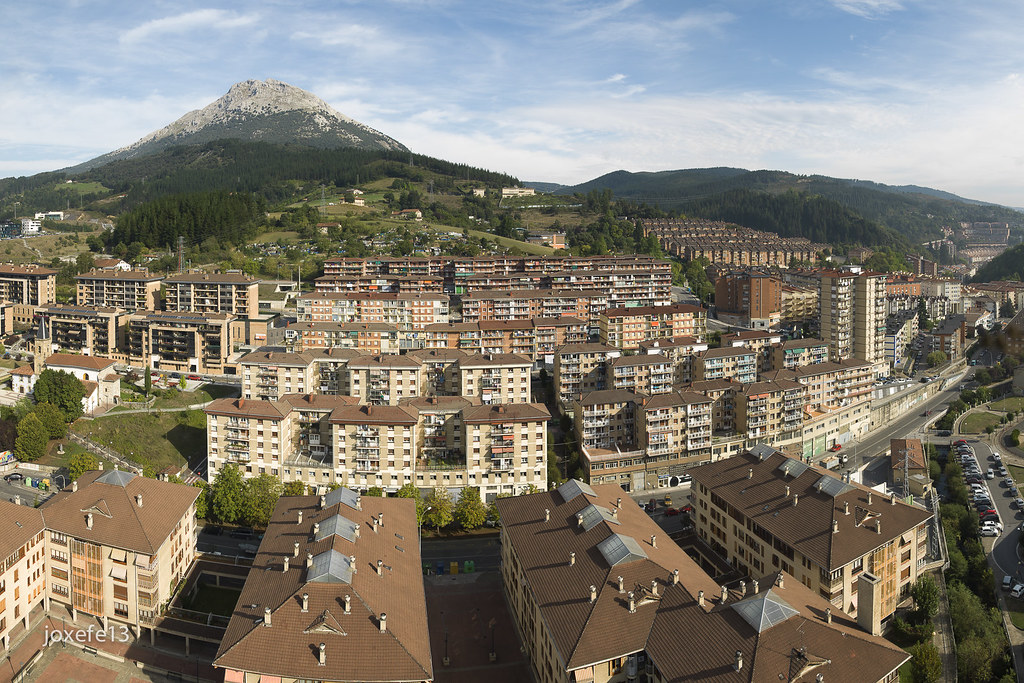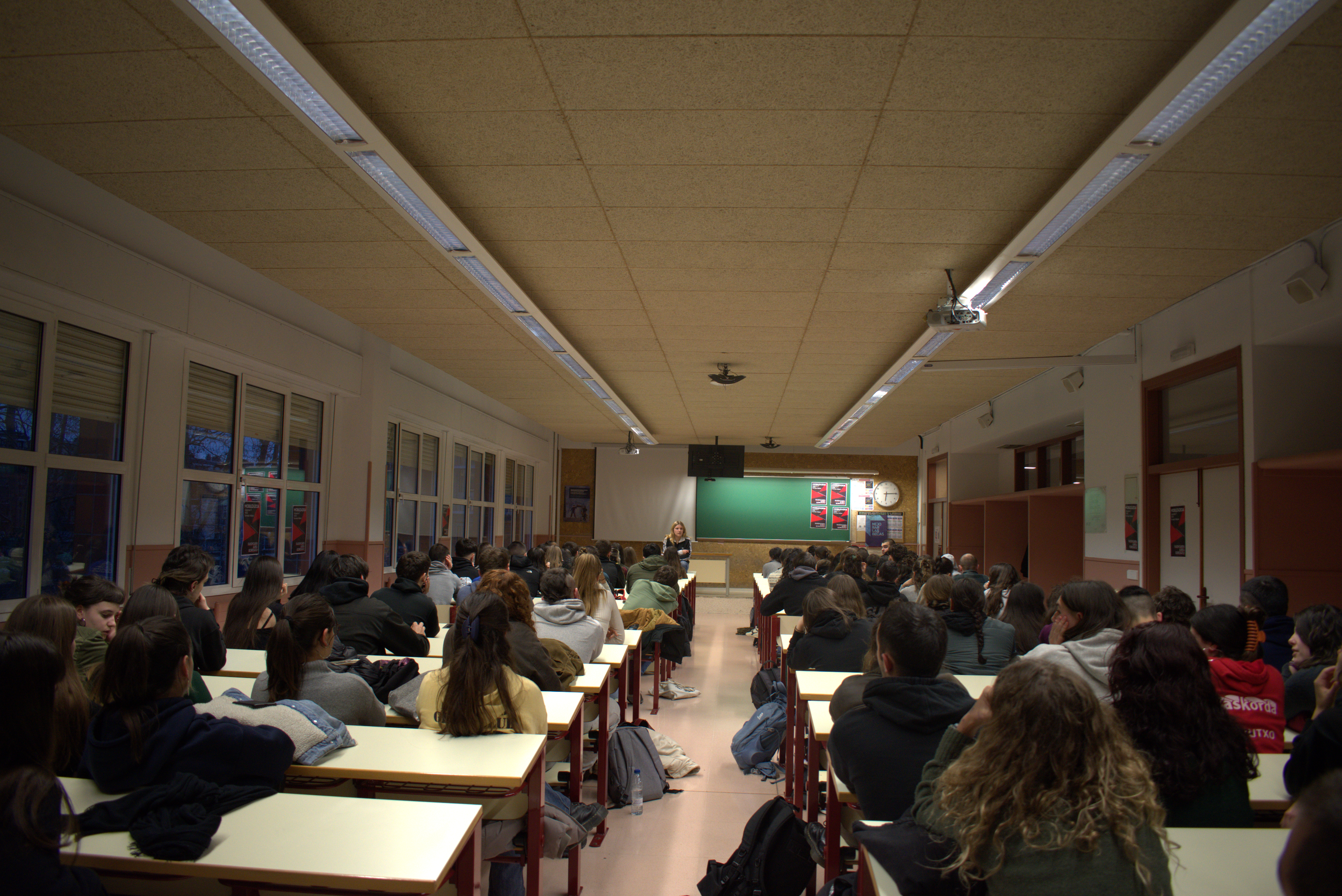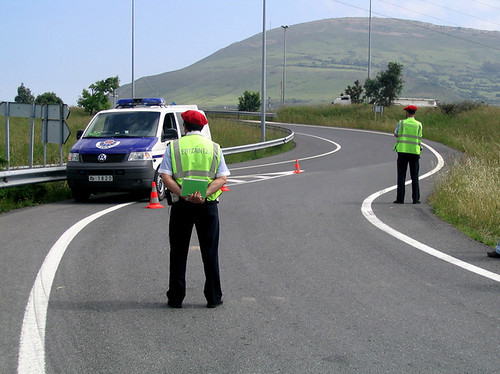"Here relationships happen many times as sheep flock, out of fear of the wolf"
- In that concentrated, nocturnal environment that generates the sound of the saxo, you suddenly notice the fingerprint of a melody of fandango, biribilketa, jota or Sanfermin that crosses the atmosphere. Josetxo Goia-Aribe is undoubtedly the magic point of a Naughty Joador-Alchemist saxo.
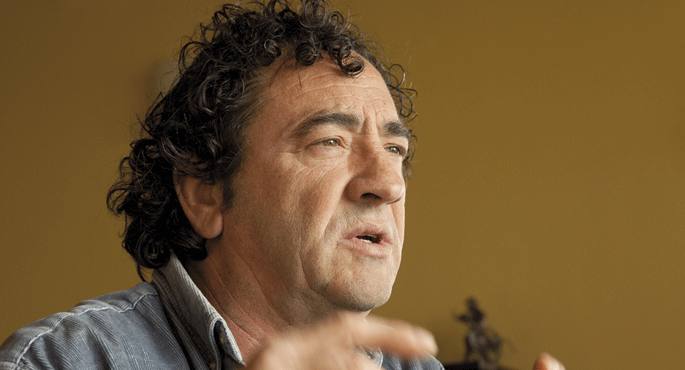
You are the son of Pamplona, founded in Doneztebe. What's that like?
He was from Father Bera, teacher. He went to Oibar, where he married a woman and soon afterwards he was given the place at Doneztebe's school. There I was born, but when I was one and a half years old we went to live in Pamplona, first to Jarauta Street and then to Calle Mayor. I now live in Ciriza, but I can say aloud that I am from Pamplona and also from those who love Pamplona. I love houses, streets and all the physical space. I'm passionate about beauty, pie, and Pamplona I love it.
Euskaldunberri?
Yes. My father didn't know Euskera. Just four little bits. The only word he taught me was the eighth. We were eleven brothers and my father said to me: “Son: When you are asked, you have to say it’s eighth.” My grandfather knew it, and he also knew it in French. That's why I've always said that I had to learn these two languages. As a young man, when I was 18-19, I began to learn Euskera. Holy German gave me the classes, he is a great teacher and I have very good memories. Then I went on my own to Zubieta, to Malerreka, to study in a house. For me, that was a real dive. I got into the water almost without knowing how to swim. Juanikorena's family welcomed me and protected me greatly. I will always thank him.
He later worked as a professor.
Yes, in the adult courses organized by the Government of Navarra, but I stopped dedicating myself to music. Then my mother in the valley said: “Son, and when you want to return to the Representative, if you forget the Basque?”
They say there are two kinds of pay: material and spiritual. As a professional musician, I don't have economic stability like before, but with a spiritual wage, I feel very rich. Since 2002, I've been teaching again, but this time they're music classes at Musikene's Upper Conservatory.
And the love for music?
My father was Txistulari and Txistulari. He also sang at the Orpheon a few times. Of the eleven brothers, I am the only one dedicated to music. In my house there was a whistle on the table and the only one that touched and touched was me. I studied txistu at the Conservatory of Pamplona. When I was 12-13 years old, I took a gig. In front of the house, I was a Baghdad or Dulzainero, and I really liked that instrument. I started playing Gaita at the age of 15 and walked from four to five years, by all the peoples of Navarre, almost like the Yugar. When I was 19 years old, though, I felt like I was spending it, as a tool, and I was little and I wanted something else. So I decided to study saxophone. I started my studies in Pamplona and ended up in San Sebastian. They gave me the end-of-race prize. I loved jazz, so I started learning and playing with my friends. With the Sebastiana group we traveled all the places and bars. They wanted to leave and for four years they asked for a scholarship to the Government of Navarra, but they did not grant it to me. In the end, I got a chance to go to Paris from Madrid and I left there at 33 years old. There I learned a lot and I brought back the Auñamendi album, made with my French friends. That's how my solo career began. In '96, I released my first album and recently, the seventh.
You were in Paris for four years. Fecundas?
The stay in Paris left me in a formidable way. I believe that in Paris there are two kinds of emigrants: one, who always thinks about fried eggs, who does not want to love things there, and the other, who wants to meet and live with things there. The first one is always remembering how well he lives in his home country and how bad he is in Paris… And yet, coming here always says how well things are in Paris and how bad they are here. So as I was in Paris, I decided not to deal with people here as much as I could. I moved and traveled. Then I went back to Pamplona, and I saw that a lot of things were very different than I thought before. I changed my mind, for example, about conflict. In the music, I also had a tremendous change, and in general, I learned to love things here. Some of those I loved a lot I put aside and others I did. I remember every day the city of Paris. I feel very French. Because I really like French culture.
Which, for example?
Here human relations are often conducted as a herd of sheep, as if fearing the arrival of the wolf. And I don't like to play in the herd or in the crew. There, relations are more just, face-to-face, tête à tête. Calmer, no screams. Here are four, five or six people around a table, and you do two or three interviews at a time. When you say something interesting, you get another one… The French are different for that, the relations are richer, deeper, they are not afraid, they link more because sexual relations are also important… It is a more noble knowledge, more honest in that sense, not the sun set. I love that French point.
I tell my son: “Apart from Beñat, the Basque Country and the Basque Country, there is life, do not forget it.” And that's what I said to myself when I came back from Paris. My last album, for example, In jota. Spanish. Why not? In this world of nationalism there are many elements that make us smaller: borders, fear, always being against everything that has a Spanish touch… I am sick. I am Basque and Spanish. My mother gave me Spanish and I love it. It's my mother tongue. And what? I say these things out loud. The Basques of Iparralde, in general, are not ashamed of being French, except for the children of some refugees. There are people who have been hanged in the 1980s. Because those who come to Madrid and bend are going to Spain and on the journey they go to Spanish after making two or three phrases in Basque. A really great shame. There are lots of them in Navarre. I can read on that train the last book of Sánchez-Ostiz (in Spanish) and at the same time I can answer in Basque to a phone call, which, for example, makes me feel good.
Mixing is also a source of creativity, isn't it?
I think we have to be open to creating things. From the album of the jota, perhaps someone can think that it is a marketing issue, mix fado, flamenco… No. It's not that. This is made of heart. In Paris, I had a very good teacher, Jean Guerin, who taught piano lessons for non-pianists. I don't know how it happened, one day, intimidated, I told him that as a young man I had worked with traditional instruments and music from the Basque Country, from the Pyrenees, and he, excited, told me that it was an incredible privilege. He told me I had to do something with all of that. All this information, all this tradition was in my veins, and those words were a kind of rocket that ignited me. I will always thank him for telling me.
Why did you come back?
Maybe because I didn’t fall in love with anyone there… In addition to that, Paris is a very expensive city. Walking as a musician is very difficult, they are one of the best musicians in Europe, in the world and the competition is violent and hard. I love Pamplona and I love the Pyrenees. I like this good life here, don't shout from bar to bar.
You’re a mountaineer, you’ve built a green house… You also have love for nature.
When he lived in Pamplona he went once a week to this valley of Etxauri, specifically to the stairs of Ciriza. It's a road between rocks. Beautiful, wonderful place. Place of licks. Once I saw that a plot was on sale and we took the opportunity. Living in nature, 15 minutes from the city, was what you wanted. Every now and then I have to go to the city, to the sheep flock. The Lesakarra poet Francisco Javier Irazoki said that to enjoy the paradises you have to flee them from time to time. On the other hand, some people think that here, being in the middle of nature, inspiration comes more easily, but I, like the writer Jon Alonso, believe that inspiration is in the ass, that is, that working gives you the idea and not what surrounds you.
How do you see the musical landscape today?
Very bad. Musicians have to play. Musicians, like most people in this West, we have to eat three times a day. Culture is seen as unnecessary and in this time of crisis everything is very difficult. Cuts to culture are detrimental to creators. Maybe artists will always rain, but the situation today is very worrying. Those who manage public money should do culture pedagogy, dedicate what's out there to people, but most of the time they don't. In France, for example, they have more sensitivity to do so. A small example: five days ago I sent about 35 e-mail to so many other culture technicians and culture councillors from Navarra doing my presentation. In addition to informing me and the criticisms that have been made to me, I offered to send them a copy of my last album free of charge. I have not received a reply. And think about how easy it is to answer "ok" or "ok" through your computer, if you like. Three seconds. I don't want to smoke with those things, but you have to say things out loud. It's a pity, but now there's no patronage, no one to help you with affection. Now messages are trademarks and banks.
On her last album, In jota, the girls put them in an unusual way. Is this not a kind of sacrilegious in Navarre?
In this land where we live, we're very attached to our traditions, and there's also something that makes noses worse if you touch something. In Navarre, the young girl has such an icon. I've gone into the kitchen and I've shook traditional jotas to do creative work. That's been amazing for a lot of people.
You have always been affected by the jota.
I've always liked traditional music, I'm excited and I always keep it in my pocket, when it comes to doing other things to get out of there. Jotas harmoniously are not very rich, but they have ways to sing, melismas, timbre… their own, they have no fades or cocks, for example. It is sung in very high volume, which usually gives it a bad name. But you can also sing a young girl gently, as if she had a baby in her arms. The young singer Arantxa Díez always told me that she had the feeling that we've gone back and that we've recovered what we've been taken from.
1959ko martxoaren 12an Donezteben sortutako iruindarra da Josetxo Goia-Aribe, saxo jotzaile eta konpositorea. Gazte-gazterik hasi zen txistua jotzen, ondoren gaitari putz eginez Euskal Herriko bide bazterrak eta bere musika sakon ezagutzeko parada izan zuen. Egun, jazza eta musika tradizionala inork bezala harilkatzen dakien musikari aske eta ausarta da.
Auñamendi: Xabier Letek erran zidan disko honi buruz: “Josetxo, gu hilik, diskoan aipatzen dituzun tokiek iraunen dute, lan ederra!”.
Eunate: Isiluneak existitzen direlako, musika dugu.
Herri-miña: Zuri-beltzean zen partituran koloreak ikertu eta –agian– sortu nituen.
Ilhargi-min: Bildotsez mozorrotutako otso asko badira Euskal Herrian. Disko hau ez nuke inola ere berriz eginen. Esperientzia txarra izan da. Pierre Topet Etxahünek burua altxatuko balu... A! Ze tuntuna ni! Fini!
Los pendientes de la reina: Agian poesia gehien duen lana.
La Orquesta jamalandruki: Orgasmoa.
En Jota: Eguzkia, egia, Mediterraneoa, ¡¡Aupa esa jotica!!









